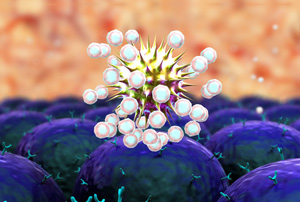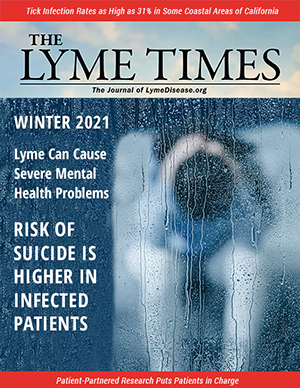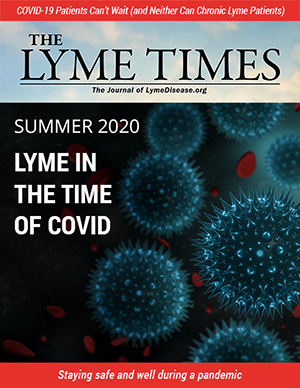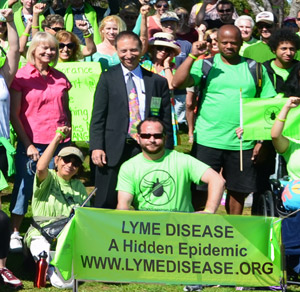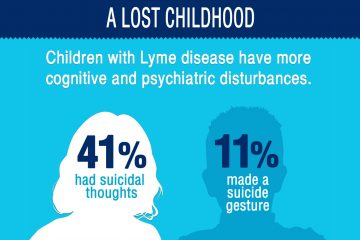- Home
- Find A Physician
- FIND A PHYSICIAN
- LymeTimes
- Current Issue
- Archives
- FEATURED LYMEDISEASE.ORG ISSUES
- Resources
- LYME LITERATE PHYSICIAN VIDEOS
- Physicians
- Members
- About Us
- Resources
A n exciting announcement rippled through the Lyme community recently. Well-known Lyme researcher Dr. Kim Lewis of Northeastern University has identified an antibiotic that appears to selectively kill Lyme spirochetes while leaving gut microbes alone.
This is highly significant because there hasn’t been a drug developed specifically to treat Lyme disease in…well, forever. Let’s walk through what we know about this promising discovery—and what we still need to find out.
Antibiotics from Soil
 Did you know that most antibiotics are produced in nature by bacteria and fungi in the soil?
Did you know that most antibiotics are produced in nature by bacteria and fungi in the soil?
Professor Lewis and his research team recently screened soil samples looking for compounds that could be used specifically against Borrelia burgdorferi, the pathogen that causes Lyme disease, but that would not kill a broad array of other important bacteria.
The team identified a substance called hygromycin-A, a naturally formed antibiotic that was originally discovered back in the 1950s but was never studied in humans or brought to market.
Back then, researchers looked for powerful broad-spectrum drugs that could target many kinds of microbes. The more diseases a drug could treat, the more revenue it could generate. This strategy was the hallmark of Big Pharma’s “one-size-fits-all” approach to drug development. Narrow-spectrum antibiotics such as hygromycin-A were dismissed because their profit potential was smaller.
But here’s the deal about broad-spectrum antibiotics and Lyme disease. While the drugs kill Borrelia, they also wipe out a lot of other stuff. This includes “good bacteria” in the body’s sensitive gut microbiome, as well as other important local microbiomes (skin, mouth, reproductive organs, lungs, etc). Reducing the bacterial diversity in these local areas or microbiomes is now known to increase the risk of developing chronic diseases, cause serious symptoms in patients, and contribute to the global antibiotic resistance problem……Join or login below to continue reading.
You must be a LymeDisease.org member to access this content.






